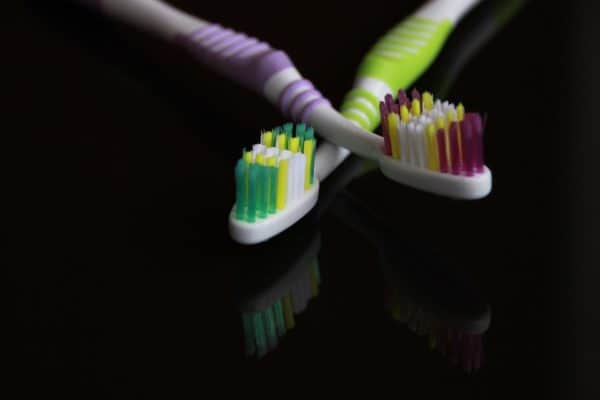
You do it every morning, but you probably don’t think too much about it.
Brushing your teeth
But, which should you choose: an electric toothbrush or a manual one? Most people do have opinions about this. Here’s what you need to know about this morning ritual and how it affects your health.
Why Electric Toothbrushes Are So Popular
People who switch to electric toothbrushes almost always notice the same thing: their brushing is more efficient. There are several reasons why you might want to consider making the switch. First, electric toothbrushes are great when you have arthritis. The illness makes it hard for you to hold onto things, and you may not have great grip strength. An electric toothbrush does a lot of the work for you.
If you struggle to hit the recommended two-minute mark with your brushing, or you just don’t think about it, then an electric toothbrush might be for you. They often have timers on them that shut off when you’re done brushing.
It makes hitting the 2-minute goal a snap
There is some research showing that electric brushes with rotating-oscillating bristles are more effective at removing plaque and preventing gum disease than manual toothbrushes. And, sonic brushes, which vibrate at up to 30,000 to 40,000 strokes per minute, are even better at cleaning, since the added stokes and water push toothpaste into areas where manual brushes can’t reach.
But Maybe You Don’t Need A Fancy Brush
Even with all the advancements in brushing, you may not need such a fancy brush. First of all, they don’t eliminate your need to see a professional dentist. You will still want to use a site like CarefreeDental.com to find someone to clean your teeth once or twice a year.
An electric brush also can be very expensive. And, replacement brushes cost money — a lot of money.
The type of brush you choose is just one factor that affects your oral health. You also need to be concerned with flossing and tongue scraping, which can effectively remove most, if not all, of the resident bacteria between your teeth, which is where a majority of the plaque problem begins.
Choosing A Good Brush
Whether you choose electric or manual, here’s what you need to look for:
First, choose a brush with softer bristles. It will clean your teeth in a more gentle manner. Make sure the head is the right size for your mouth. You’ll want to access the very back of your mouth with ease. If you can’t, then the brush is too big. Get a smaller brush head.
Always check the quality of your brush bristles before you start brushing. According to the ADA, you should change your toothbrush every 3 to 4 months, or when the bristles become worn and frayed.
At the end of the day, it doesn’t really matter whether you brush with an electric brush or a manual one. What’s important is that you choose a brush that’s up to the task. The brush needs to be angled towards your gums when you brush, regardless of whether it’s an electric or manual one. You should use toothpaste, and you should floss every day.
If you’re brushing between meals, you’re not giving the plaque enough time to stick to your teeth, so you should not have too much trouble maintaining your oral health between dentist visits.
Non-Brushing Factors
Research suggests that exposure to acidic foods can play a huge role in your oral health, regardless of the toothbrush you use. Acidic foods soften the enamel of your teeth. So, brushing your teeth after a meal increases the risk of enamel erosion. You should instead rinse your mouth with water for at least a few minutes and then wait 30 minutes before you brush.
While you don’t have to avoid acidic foods, it is best to minimize the amount of time acid is in direct contact with your teeth and gums. Also, sugary foods can increase the acidity of your mouth because the normal bacteria that inhabit it use sugar as a food source. Waste products are acidic, which can contribute to the problem of tooth enamel erosion.
Conclusion
When brushing, remember that the method and style of brushing and flossing is often more important than the type of brush you choose. As long as the brush head fits in your mouth, and you can reach all of your teeth, the brush is a good one.
Cerys Morris is a dental hygienist. She loves to help people have healthy smiles by sharing her insights online. Her articles are available mostly on health websites.
 Gearfuse Technology, Science, Culture & More
Gearfuse Technology, Science, Culture & More


